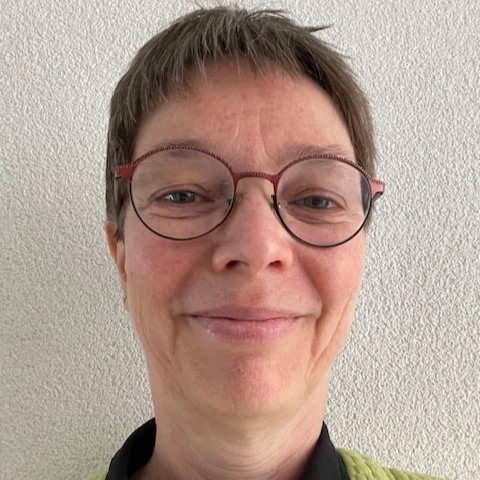
Mirjam Ernestus
Mirjam Ernestus
Radboud University
The Netherlands
ExLing 2024 Paris keynote
The effect of sentential rhythm on the number of syllables in a word
Summary
It has been known for many years that speakers of Germanic languages may adapt the position of the primary stress in a word in order to avoid a stress clash with the initial stress of the next word (compare English thirteen in twelve, thirtéén, fourtéén and in thírteen mén, e.g. Bresnan, 1972). In this talk I will report on two studies, both based on Dutch, that investigated whether speakers may also avoid stress clashes by adapting the number of syllables in a word.
The first study (Ernestus & Smith, 2018) was corpus-based and focused on the Dutch word eigenlijk `actually’, with the full pronunciation /’ɛɪxələk/ and many monosyllabic and disyllabic pronunciation variants. The second study (Zee, ten Bosch, & Ernestus, submitted) focused on Dutch nouns with final stress that can be pluralized both with the suffix -s /s/ and the suffix -en (/ə/ or /ən/). This study consisted both of a behavioral experiment and corpus-based research.
The results from the two studies have important consequences for our view of speech production, as they show that both the exact pronunciations and the morphemes of the words in an utterance are not determined in a strict chronical order and that the speaker’s “internal beat” plays an important role also in spontaneous speech. The two studies also show the difficulties and opportunities of corpus-based research as well as the difficulties of experimental research.
References
Bresnan, J. W. 1972. Stress and syntax: A reply. Language, 326-342.
Ernestus, M., Smith, R. 2018. Qualitative and quantitative aspects of phonetic variation in Dutch eigenlijk. In: Cangemi, F., Clayards, M., Niebuhr, O., Schuppler, B. Zellers, M. (eds.), Rethinking reduction, pages 129-163. Berlin/Boston: De Gruyter Mouton. doi:10.1515/9783110524178-005.
Bio
Mirjam Ernestus is a full professor of Psycholinguistics at Radboud University, in Nijmegen, the Netherlands. She received her PhD from the VU University Amsterdam, and held several post-doctoral positions at the Max Planck Institute for Psycholinguistics in Nijmegen. It is Mirjam’s ambition to fully understand all properties of informal conversations in a speaker’s native and non-native languages, why we produce them the way they are and why we are able to understand them so easily. Much of her work is about the short pronunciation variants of words that often occur in informal conversations (e.g. /jεʃej/ for English yesterday). Mirjam uses a three-pronged approach: corpus-based studies, experimental studies, and computational modelling. Mirjam is a member of the Royal Netherlands Academy of Arts and Sciences and of the Academia Europaea.


